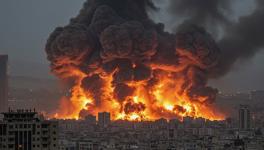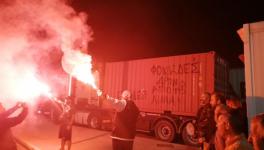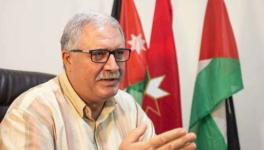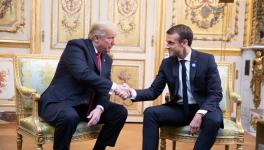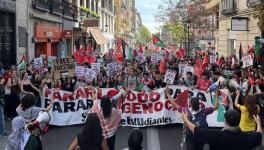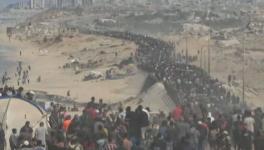Lula Defies G7, Condemns Gaza Killings, Attack on Iran
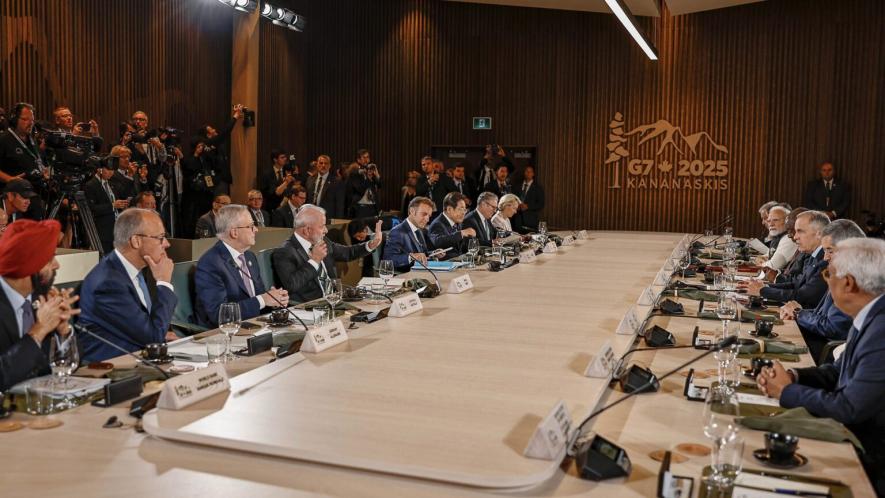
Brazilian President Lula da Silva speaking at the G7 meeting. Photo: Lula / X
On June 17, President Luiz Inácio Lula da Silva condemned the escalation of Israeli attacks on the Gaza Strip and Iran. In a speech during the extended session of the G7 Summit in Canada, Lula described the Israeli offensive against the Palestinian population as “indiscriminate killing” and denounced the use of hunger as a weapon of war.
The statements go against the group’s position announced the previous day.
“In Gaza, nothing justifies the indiscriminate killing of thousands of women and children and the use of hunger as a weapon of war,” said the president, speaking before the leaders of the world’s major powers gathered in Kananaskis, Canada.
Lula also criticized the international silence in the face of the ongoing repression: “There are countries that still resist recognizing the Palestinian state, which highlights their selectivity in defending law and justice.”
On Monday, the leaders of the G7 – the US, Canada, Italy, the UK, France, Germany, and Japan – released a statement supporting Israel and condemning the alleged threat from Iran, which the document described as a “source of instability and terror” in West Asia.
Lula’s speech comes amid a new escalation in West Asia. Since last Friday, Israeli bombings in Iran have left at least 224 dead and about 1,200 wounded, according to the Iranian Ministry of Health. The Iranian government reacted by launching attacks that killed 20 people in Israel.
Lula warned that the recent Israeli attacks on Iran “threaten to turn the Middle East into a single battlefield, with incalculable global consequences.” For the president, “there will be no energy security in a world at war” and it is urgent to restore the role of the United Nations (UN) by forming a representative group of countries committed to peace.
The Brazilian president also pointed to global military spending as a symptom of international disorder. According to him, investments in weapons reach the equivalent of Italy’s gross domestic product, about USD 2.7 trillion per year. “That’s 2.7 trillion dollars that could be invested in fighting hunger and in a just transition,” he said.
On the war in Ukraine, Lula declared that “neither side will achieve its objectives by military means” and defended dialogue as the only path to a ceasefire and the construction of a lasting peace.
Popular pressure for concrete measures
Lula’s participation in the G7 comes under pressure from pro-Palestine popular movements in Brazil, which launched a petition demanding concrete measures from the Brazilian government, such as the immediate severance of relations with Israel.
Over the weekend, as Canada prepared to welcome G7 leaders, thousands of protesters took to the streets in several Brazilian cities and international capitals in support of the Palestinian people.
The scenario is also one of repression of international initiatives that challenge the Israeli siege. On Sunday, Egyptian forces violently dispersed the Global March for Gaza on the Rafah border. Last week, activists from the Freedom Flotilla, including Swedish activist Greta Thunberg and Brazilian activist Thiago Ávila, were arrested by the Israeli Navy. They were attempting to bring humanitarian aid by sea to the Gaza Strip.
Defense of energy transition and sovereignty over minerals
Lula also used the G7 podium to present Brazil’s experience in clean energy and to defend the sovereignty of developing countries over their natural resources.
“Brazil was the first country to invest large-scale in renewable alternatives. Ninety percent of our electricity comes from clean sources,” the president recalled.
Highlighting strategic mineral reserves such as niobium, nickel, graphite, and rare earths, Lula criticized extractive models of the past: “For centuries, mineral exploitation has generated wealth for a few and left a trail of destruction and misery for many.” He argued that raw materials should be processed in the producing countries themselves as a way of breaking the cycle of economic dependence.
Courtesy Peoples Dispatch
Get the latest reports & analysis with people's perspective on Protests, movements & deep analytical videos, discussions of the current affairs in your Telegram app. Subscribe to NewsClick's Telegram channel & get Real-Time updates on stories, as they get published on our website.









